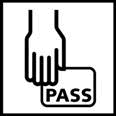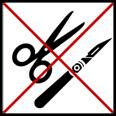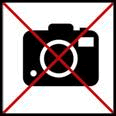


After the foiled terrorist attack on planes going from Britain to the U.S. on the 10th of August, taking a plane will never be the same… until we are distracted by something else and fall back on old habits.
Just a few days ago, I took a plane from Montreal to London with my laptop, two books, a gigantic bottle of water and an eyelash curler. One never knows when an eyelash curler might come in handy. The woman sitting next to me spent most of the flight guzzling a fluorescent sports drink and hugging a teddy bear big enough to take up half her seat. I tried not to pass judgment.
Had we traveled 24 hours later, we would have had a very different experience. After being stripped of shoes, belts and jackets to go through security, all that we could have brought on the plane would have been stuffed in a clear plastic bag allowing for easy screening and quick detection of teddy bears and eyelash curlers because the former can hide a multitude of weapons in its fuzzy belly. As for the latter, well, one never knows when it might come in handy... The restrictive list of the items we are allowed to fly with is now reduced to what could be called necessities:
- Pocket-sized wallets/ purses, plus contents (contents may not include explosives, weapons, any form of liquid, but I guess you can still have a bit of money)
- Passports/ travel tickets (might be a bit complicated to travel without them)
- Prescription medicines, not in liquid form unless verified as authentic (does the security personnel have to take a dose?)
- Essential medical items, eg diabetic kit (considering all these restrictions are apparently aimed at our safety, it was considered best to allow for a few bottles of insulin on board less these safety measures actually cause a passenger's death)
- Glasses & sunglasses, no cases (you might need them to see the films that will be screened to distract you from the fact that you couldn't even bring a book on board because you might have distracted the cabin crew with an impromptu dramatic reading)
- Contact lens holders, no solution (I'm sure Boots is on it's way to developing a dry storage solution but a bit of spit will have to do for now...)
- Baby food & milk for those with infants - bottle contents must be tasted by accompanying passenger (now is not the time for that brussel sprout flavored puree unless you really want to know why your child spits it out more than he swallows it)
- Essential sanitary items for infants (at least children are still allowed a minimum of comfort)
- Female sanitary items, unboxed (so everybody in the plane can know it's that time of the month)
- Tissues, unboxed, or handkerchiefs (because Keys, but no electric key fobs (are Tasers allowed if they're also key rings?)
Sure, it's a very short list considering all that we took for granted as essential to a comfortable flight just a few days ago, but that's nothing compared to the list of items allowed in the British Library's reading rooms: - No bag larger than 29x21x10cm may be taken into the Reading Rooms
- In addition to the above, no more than one clear plastic bag may be taken into the Reading Rooms, and, if required, a clear plastic bag for a lap top computer.
- You must comply with all requests for inspection: staff may open and inspect your personal possessions (including bags, sealed envelopes, folders, personal computers etc) as you enter and leave the Reading Rooms.
- You may not take outdoor coats into the Reading Rooms. Outdoor coats include overcoats, waterproof clothing of any length, outdoor jackets e.g. bomber, quilted, sheepskin, puffer, fleece and leather jackets etc. (This is not a place for fashion)
Items that could harm the collections are not allowed in the Reading Rooms. These include, but are not limited to: pens, food, drink, sweets (including cough sweets), chewing gum, glue, bottles of ink, correction fluid, cleaning liquids, scissors, knives (including craft knives and razor blades), highlighter pens, scanner pens, adhesive tape and umbrellas.
It's not clearly mentioned in these rules and regulations, but eyelash curlers are not allowed either. One never knows when a reader might be tempted to curl a few pages of a rare manuscript in a moment of boredom.
These rules are clearly aimed at the protection of the British Library's collection. It's your right not to respect them, but then you will not be granted access to the collection. In this case, responsibilities and rights are clearly spelled out: respect the rules, get access to the books.
But what are the responsibilities and rights implied by the new rules applied to air travel? We are told that these strictures are meant for our own security so we blindly accept them. Then again, we don't really have a choice if we need to take a flight, so we resort to rationales along the lines of "I don't like it but I'd rather go through that knowing that everybody has to do it which should insures my safety."
I agree that many systems cannot function without rules and regulations, some measure of control, but I start getting a tingly feeling of discomfort when the power to apply these rules is attributed to a rather conceptual entity (Airport Security? National Aviation Security Committee? Department for Transport? U.S. Government? British Government?) and when I'm told it's all for my own good. That's what parents tell their children when they don't want to eat their brussel sprout puree and can’t be bothered to explain why the dreaded green mush should be so beneficial...


2 comments:
La sécurité dans les aéroports est passée du modèle « On prend des mesures raisonnables pour identifier les actes potentiels de terrorisme » au modèle « Tout le monde est un terroriste en puissance ». Je ne crois pas que ce changement de modèle assure les voyageurs d’une meilleure sécurité. Dans un cas comme dans l’autre la sécurité demeure et demeurera toujours relative. Par exemple, il est statistiquement démontrable que la probabilité de mourir d’un accident automobile est 60 fois plus élevée que celle de mourir d’un accident aérien. Faut-il pour autant traiter tous les automobilistes comme des criminels en puissance ?
Ce qui a changé depuis le 11 septembre ce n’est pas tant la sécurité des voyageurs. C’est plutôt le fait que parce que ce texte et ce commentaire contiennent trois fois le mot « terrorist (e) (me) », trois fois le mot « plane » et cinq fois le mot « security (é) », ce blogue a maintenant été repéré par les agences de sécurité de plusieurs pays.
C'est vrai. Nous vous regardons tous, tout le temps
Post a Comment